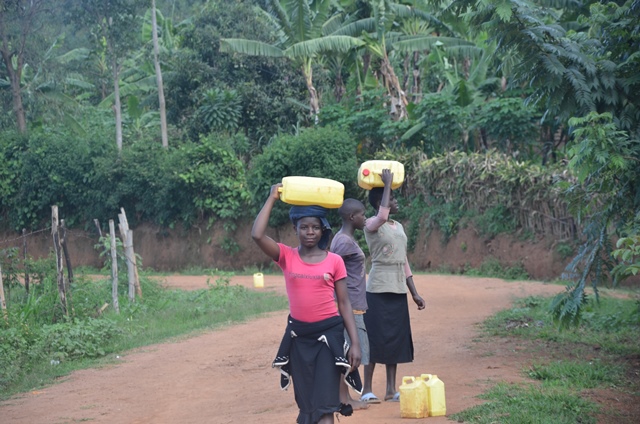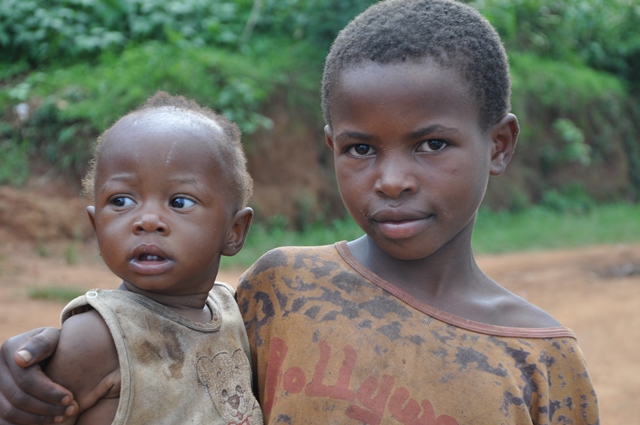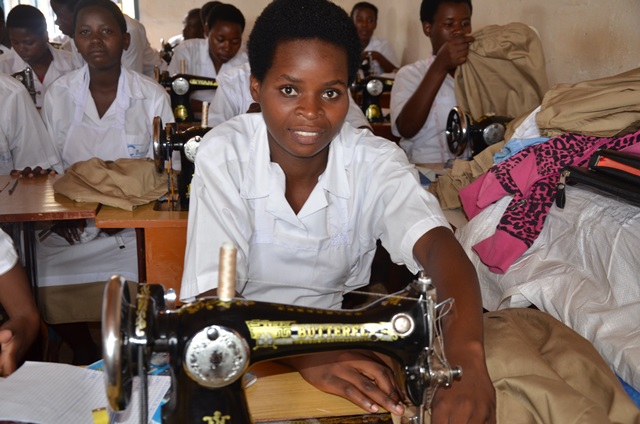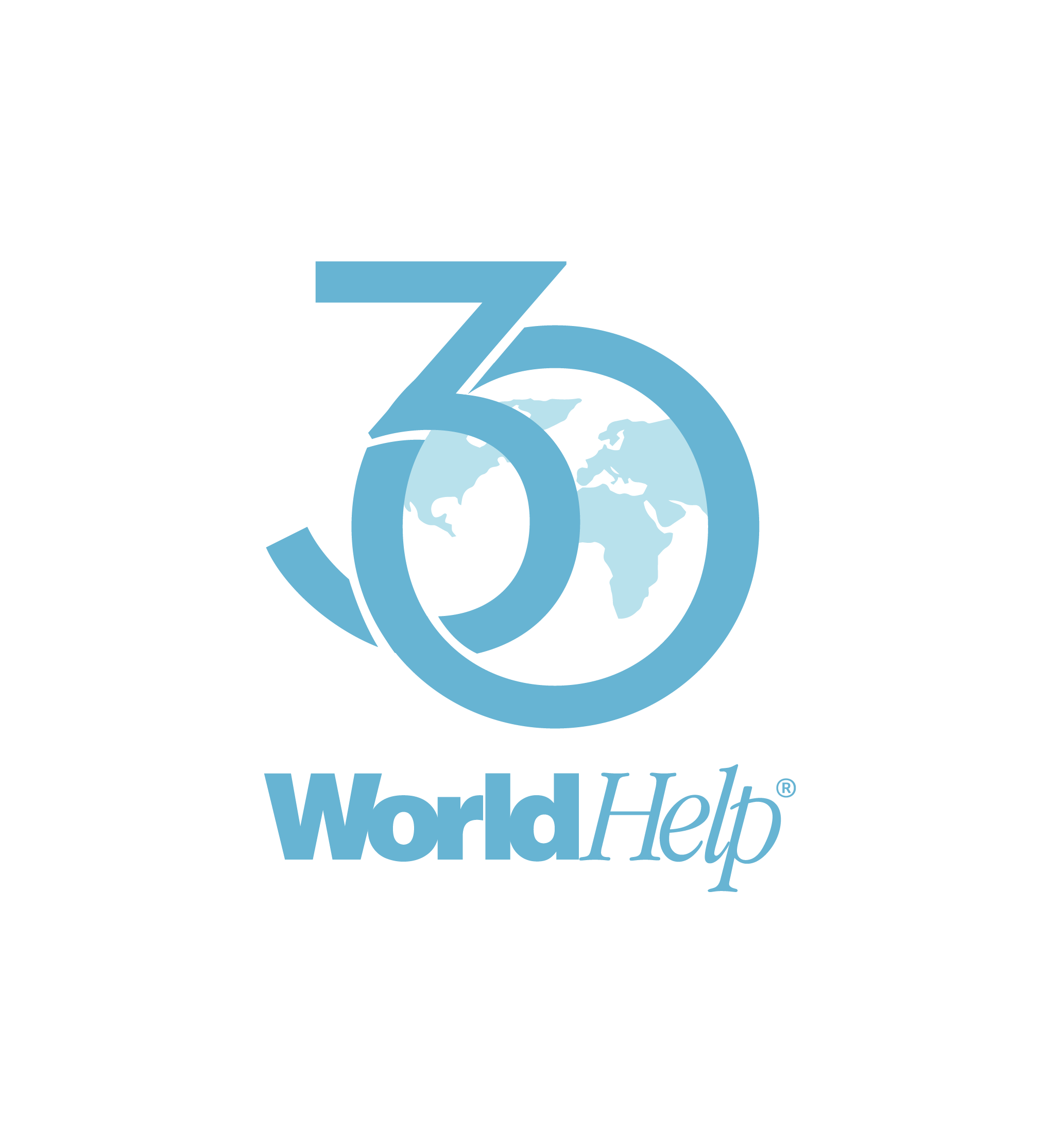The hills of Rwanda tell a story all their own.
It was here, 20 years ago, that a nation’s darkest chapter unfolded in a 100-day massacre that wiped out more than a million innocent victims. Memories of the hate-infused slaughter cast long shadows on Rwanda’s rising slopes, permeating the hills and becoming part of her pathways, her words, her people.
Hidden beneath the brilliant palate of red, green, and gold there is deeply-rooted narrative that dates back since the birth of civilization . . . the story of Rwanda’s women.
The ritual begins at dawn, as the smoldering coals of last night’s cooking fires give off their last breath of heat. The women rise from their mats, wrapping their strong bodies in brightly patterned cloth. The babies tied to their backs sleepily rub their eyes and let their arms dangle. Yellow jerry cans at their sides and more children pattering at their heels, the women begin to walk.

Twenty-one-year-old Chantal carefully descends down the rocky red path, digging her toes into the soil for traction. She joins millions of her sisters all around the world in the endless walk for water—a task that collectively steals over 200 million hours of their time every day. The daily journey—a grueling four-hour round-trip up and down the steep embankments to a valley stream—swallows up nearly 30 hours of her week.
The burden Chantal carries is astounding. On the trek back to her village, she balances 40 pounds of dirty water on her head, a baby on her back, and yet another growing inside her . . . she is seven-months pregnant.
Chantal knows that at any time, parasites or other illnesses could steal one of her children away soundlessly in the night. And at any morning, her journey to the valley could end in tragedy—she would become another statistic, another name, another woman who is kidnapped, beaten, and raped on her way to fetch water.
While it’s true that dirty water often holds the keys to life and death in the developing world, it also highlights the disparity of opportunities for women as a whole. In sub-Saharan Africa, for example, less than 1 in 5 girls even make it to secondary school, and more often than not, it is because they must help their mothers in the daily task of carrying water.

When a developing community gains access to a sustainable water source, the destiny of their women drastically changes.
Give a girl access to clean water, and the ripple effect of transformation can finally begin. She enjoys better health, is more likely to complete school, and is less likely to become a teen-mother, child bride, or AIDS victim. A girl with clean water can grow up into a woman with options, opportunities, and influence. She is more likely to create a small business or alternate source of income, which she will be able to reinvest in her family. Give a girl clean water, and you give her a say in her story.
Although water is just one of a myriad of obstacles inhibiting the equality of women, (child marriage, sex trafficking, female infanticide, unequal access to education and job opportunities, and negative cultural attitudes), it is certainly the most catalytic.
Today, Chantal’s mornings are very different. She rises and leisurely walks the five minutes it takes to reach her village’s new well, laughing and singing with other women along the way. She watches her children skip and run with boundless energy; their bouts with lingering illnesses now just a flickering memory of the past.
With hours of extra time, Chantal plans to attend a local vocational school where she can become a skilled seamstress. The extra money she earns will allow her children to go to school and receive medical care. She will be able to save for the future and give to others.

She will let herself dream again.
That ocean of golden hills that once symbolized a legacy of endless struggle are beginning to spark a different story in Rwanda. The hidden valleys, perforated with shadows and little red pathways, now stand as living monuments of an age-old journey on a road that now ends at a pump . . . and radiates with the laughter of women, basking in the hope that has come.




